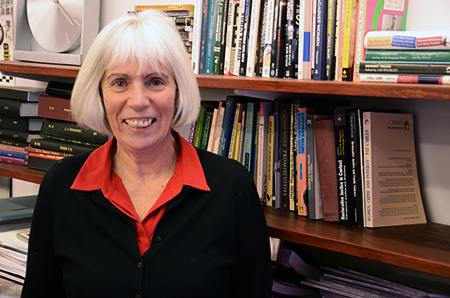Professor Sandra Walklate, Eleanor Rathbone Chair of Sociology at the University of Liverpool, United Kingdom
ADDRESS: Justice as reconciliation: A healing moment for victims?
Reconciliation is vague, fuzzy, elastic, multi-facetted and multi-layered. Nonetheless, much effort has been put into initiatives designed to facilitate reconciliation either between individual, groups, or nation states. These ‘regime(s) of reconciliation’ (Verdoolaege 2008) can, and do, promote ‘good’ victims and neglect those considered to be ‘bad’. This can result in the victim’s voice being muted or erased rather than recognised. Yet victims, as human beings with agency, find their own way as individuals or collectives to work with their experiences. This presentation will explore how and under what conditions formal and/or informal reconciliation provides the kind of healing that victim consider appropriate for them.
 Professor Sandra Walklate is Eleanor Rathbone Chair of Sociology at the University of Liverpool. She is internationally recognised for her work in victimology particularly around criminal victimisation and the fear of crime, and gender and crime. Over the last decade this work has extended into understanding the nature and effect of ‘new’ terrorism, connected policy responses, and presumptions around resilience. Her recent publications include: The Contradictions of Terrorism (2014, Routledge with Gabe Mythen), Gender and Crime (2012) (4 volumes) (ed) Routledge Major Works Series); Handbook on Sexual Violence (2011) (co-edited with Jennifer Brown) Routledge-Willan and forthcoming are Criminology and War: Transgressing the Borders (edited collection, Routledge, 2015, with Ross McGarry) and Victims, Trauma, Testimony (2015, Routledge with Ross McGarry) Her first book dealing with victimology has recently been reissued as part of the Routledge Revival Series, entitled Victimology: The Victim and the Criminal Justice Process (1989-2012). From January 2014 she took up the role of Editor in Chief of the British Journal of Criminology and in July 2014 received the British Society of Criminology’s award for outstanding achievement.
Professor Sandra Walklate is Eleanor Rathbone Chair of Sociology at the University of Liverpool. She is internationally recognised for her work in victimology particularly around criminal victimisation and the fear of crime, and gender and crime. Over the last decade this work has extended into understanding the nature and effect of ‘new’ terrorism, connected policy responses, and presumptions around resilience. Her recent publications include: The Contradictions of Terrorism (2014, Routledge with Gabe Mythen), Gender and Crime (2012) (4 volumes) (ed) Routledge Major Works Series); Handbook on Sexual Violence (2011) (co-edited with Jennifer Brown) Routledge-Willan and forthcoming are Criminology and War: Transgressing the Borders (edited collection, Routledge, 2015, with Ross McGarry) and Victims, Trauma, Testimony (2015, Routledge with Ross McGarry) Her first book dealing with victimology has recently been reissued as part of the Routledge Revival Series, entitled Victimology: The Victim and the Criminal Justice Process (1989-2012). From January 2014 she took up the role of Editor in Chief of the British Journal of Criminology and in July 2014 received the British Society of Criminology’s award for outstanding achievement.




